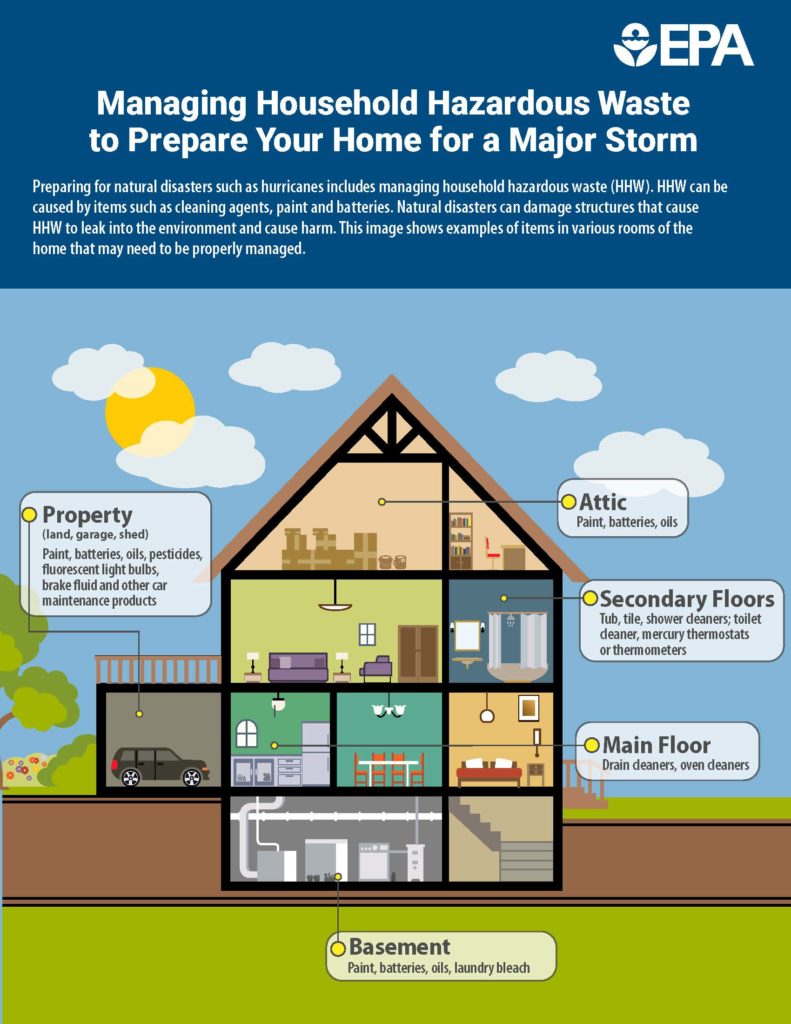
Preparing your Home for a Storm: What to do Before, During, and After a Flood.
We’ve seen the power a storm can carry, and the devastation it leaves behind. Prolonged power outages and flood damage are two of the biggest risks to your food. Fortunately, a plan can help keep you and your family safe from foodborne illness. This includes knowing the proper food safety precautions to take before, during, and after a power outage — and being prepared to safely handle food and water in the event that flooding occurs.
- Prepare Yourself Before Power Emergencies
- Power Outages: During and After
- If Flooding Occurs: Keeping Food and Drinking Water Safe.
- About Foodborne Illness: Symptoms and What to Do.
Eating Safe After a Power Outage: Click here for the printable flyer, Eating Safe After A Power Outage | Consuma alimentos seguros despues de un corte de electricidad | Sekirite Manje Lè Gen Pann Kouran | 停电后保持食品安全 | An toàn thực phẩm trong trường hợp mất điện | السلامة الغذائية عند انقطاعات التيار الكهربائي
Protect Your Family and First Responders from Household Hazardous Waste
Many chemicals, materials, and products commonly found in the home are toxic and can be harmful to your health and our environment. These are called Household Hazardous Waste. Products, such as oil-based paints, cleaners, and pesticides can contain hazardous ingredients and require special care when you dispose of them or when you decide to store them in your home. Some leftover household products can react or explode under certain circumstances, such as a flood or fire in your home due to a storm. This situation can endanger your family as well as police, fire, and rescue teams who would be responding to emergencies during storms.
To get rid of these leftover or unused chemicals, you can dispose of your household hazardous waste during Barnstable County’s Household Hazardous Waste Collections that take place from spring to fall. During the off-season you reach out to Kalliope Chute, Extension’s Hazardous Materials Environmental Specialist, at #508-375-6699, kalliope@capecod.gov for info on safely storing or disposing of your household hazardous waste. You can also click here to visit the Household Hazardous Waste webpage for resources and information.
If you decide to store hazardous products in your home follow best management practices according to safety data sheets or labels. For example, store chemicals above potential flood levels but never above eye level. Store poisons and toxic substances so children and pets cannot access them. Store ignitable or flammable materials in flame-retardent containers, such as metal garbage cans with lids to reduce oxygen access. Check with your local fire, health, or emergency preparedness coordinator for more information. Check for hazardous products around your house and make note of your storage locations. This map can help you take an inventory of storage locations around your home.




